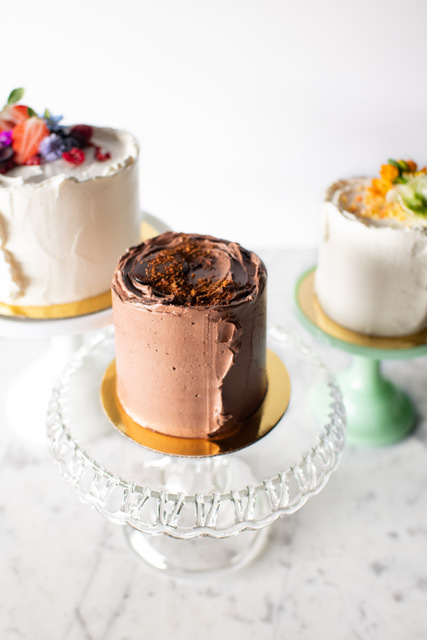Do a quick Google image search of “‘1918 Spanish flu,” and you’ll find hundreds of black and white photographs of Americans doing everyday things: getting their hair trimmed at the barbershop, playing baseball, sitting in church—all while wearing face masks.
When the pandemic subsided, so did the use of masks.
Americans—and most western countries, for that matter—have long stigmatized mask wearing with viral illnesses. In Asian countries, on the other hand, masks are encouraged.
In early April, the CDC announced that all Americans should wear face coverings in public to slow the spread of the coronavirus. U.S. Surgeon General Dr. Jerome Adams tweeted a video detailing how to DIY a mask and suggested using items found around the house like “an old scarf, a bandana or a hand towel … or an old T-shirt.”
After this pandemic ends, will masks become a permanent staple of American culture, as in Asia? Or will the custom dissipate, as it did in 1918?
We asked bioethics professor Jessica Berg from Case Western Reserve University in Ohio for a glimpse of where we could be going in mask culture and the impact of a simple face covering.
Do you think there will be a cultural shift in the U.S. where everyone will start wearing masks while sick even when this pandemic is over?
It certainly wouldn’t be a bad thing from a public health standpoint for it to be more socially acceptable for people to wear masks during common flu and cold season when they’re taking public transportation or in crowded areas. I think there’s still a genuine question about how hard it’s going to be for us, culturally, to accept masks now as not either stigmatizing or even problematic. We’re certainly not a culture comfortable with masks outside of, you know, a ski slope. It could be that we get to that point and from a health standpoint, it’s not a bad thing. There is evidence that it does protect other people, and it’s not a bad thing for us to start.
Do you think masks could even become “trendy”?
It could be something that becomes a fashion statement. There’s evidence that in other countries, Asian countries specifically, masks are as much a fashion statement as they are a health choice. If you can get it to be picked up as a fashion statement by young people, that’s pretty much the best way you can get something integrated into society.
Aside from masks, are there any other practices that you think will stick when the pandemic is over?
It may be that people wash their hands a lot more and that people are more conscious of touching their faces. It also may be that we move away from handshakes, which are a very common way to greet people. From a public health standpoint, you’re better off waving at someone.
Do you think that Asian countries, where it’s common to wear masks every day, look at countries like ours, where wearing masks isn’t necessarily normal, and think we’re being careless?
I think there is sort of an element of, “How could you not care about other people so much that you wouldn’t wear a mask in public?” Honestly, we’re not doing great as a country right now overall when other places look at us. There are states that aren’t even issuing stay at home orders or in the states that are issuing them, there are people who are disregarding them. There are certainly other countries that look at us and think that we don’t take these public health concerns seriously. They think it’s horrifying. I suspect there are a number of people here who are here studying, students who come from a variety of countries, who are so terrified by the idea that people here won’t wear [masks]. From their perspectives, everybody out here is just happily spreading the virus. And that, to them, is horrifying—it’s comforting to see people in masks, whereas we look at someone wearing a mask and think, “What does that mean? Are you sick?” They look at people on masks and think, “Well, thank goodness. If you’re all wearing masks, then I can safely go out to the supermarket.” That’s a real cultural difference.
Do people truly need to worry about getting the N95 masks or could wearing something like a bandana, scarf or handkerchief have the capacity to make a difference?
It’s really important to stress that people should not be going out and buying N95 respirators. Those are absolutely necessary for health care professionals and should be left to them and it’s ethically problematic to be purchasing those if you are not a healthcare professional in need of a mask like that. By the way, most individuals who get an N95 respirator don’t even wear them correctly. To correctly wear an N95 respirator, you have to get a pretty good seal around it. It’s not comfortable. If you’re wearing it correctly and it’s really sealed on there, you’ll end up with a big red mark your nose and your cheeks. So most people who buy them are not only taking them from people who really truly need them, but they’re probably not even wearing them the correct way to make some really useful. So that’s, that’s sort of a problem. Generally speaking, the N95 respirators are designed to protect by limiting the number of particles that can get into your respiratory system. The mask doesn’t help if you’ve touched things and not wash your hands and touched your face again.
For the rest of us, we’re recommending the reverse. The reason you want to get people to be wearing a face covering, even if they’re healthy, is because what you want is to prevent them from spewing out respirations. From that perspective, if you have almost any covering on your face or you sneeze into your elbow as you’re supposed to or into a tissue, fewer droplets come out. And since we know so much of this virus can be spread while people are either asymptomatic or just haven’t started showing symptoms yet, this could, in theory, cut down on a lot of people spreading out the virus versus taking it in. We have very little scientific evidence of whether or not particles would come through fabric. Of course, it’s possible, but if it doesn’t, that’s great—more power to you that you’ve blocked that off to some extent. But I would say there’s so much benefit on the other side, and that’s really why we want to encourage people to wear masks.
Do you think it would be hard for our society to accept wearing masks?
I think so. That means you’re making decisions to do things that are not necessarily to your direct health benefit. But everybody doing this absolutely helps your health. In other words, it truly is a public health benefit, right? You are better off living in a world where everybody wears a face mask regularly during seasons where there’s high transmission visibility, because you don’t know who you will come in contact with that might give you something. And if everybody wears them, you included, that’s only beneficial. And that’s where we really need that cultural shift. You should start looking at people who aren’t wearing a mask like, “Whoa, they’re not wearing a mask. That’s weird. I’m gonna walk away from them.” As we start doing that, the shift becomes sort of like, “Well, of course I wear a mask, because I don’t want to give you coronavirus or I don’t want to give you my cold because I am a responsible person. I wear a mask to make sure that I’m not spreading anything to you, your loved ones, your friends and everyone you would come in contact with.”




